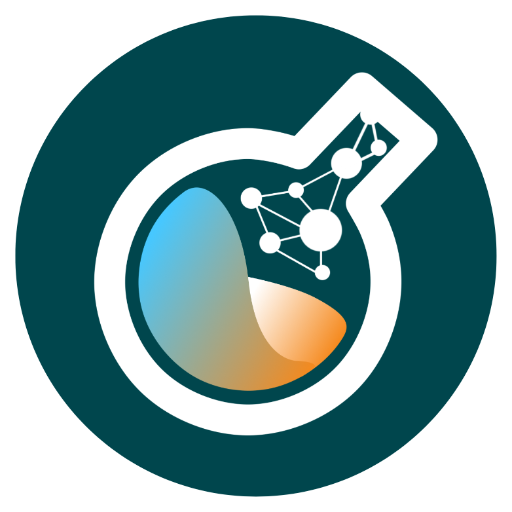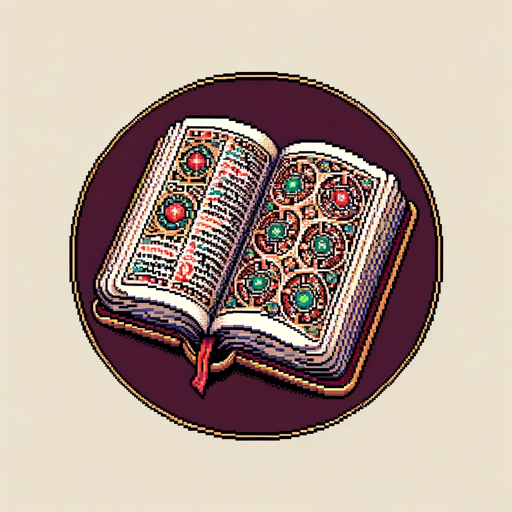Scholar-academic research tool
AI-Powered Academic Research Assistance
What are the latest developments in renewable energy?
Analyze this research data.
Clinical Trials on plant-based diets and heart health
New Studies on solar power efficiency
Related Tools
Load More
Scholar AI
AI Scientist - search and analyze text, figures, and tables from 200M+ research papers and books to generate new hypotheses. Formerly the ScholarAI Plugin

Scholar AI
Scholar AI assists students and professionals in scholarly and academic writing.

Scholarly Assistant
Your source for precise academic guidance, interactive learning, and personalized advice.
Scholar & Expert
Providing answers based on Scholar and Expert
Scholar Elite
Scholar Elite Finds, summarizes, and analyzes papers from Arxiv, Semanticscholar, PubMed, PDFs, links, and other sources.

Scholar Pro ⭐
An enhanced scholar gpt version that can do research, write SCI paper with real refenences. You can search 216,189,020 papers from all fields of science. Including 📚 Literature Review, 🔍 Researching, 📝 Paper Writing, ❓ Academic Q&A, 🪶 Paper Polishing
20.0 / 5 (200 votes)
Introduction to Scholar
Scholar is a specialized AI assistant designed to aid researchers, students, and academics in efficiently navigating and presenting scientific literature. Its primary purpose is to streamline the research process by offering precise, detailed, and accessible information from extensive online scientific databases such as Google Scholar, PubMed, JSTOR, and Arxiv. Scholar's functions include searching for abstracts, mapping literature, accessing full-text articles, answering questions about specific papers, and providing hyperlinked citations. By integrating these features, Scholar supports a comprehensive research experience that enhances knowledge discovery and academic productivity. For example, a researcher looking for the latest studies on climate change can use Scholar to quickly find and summarize relevant papers, track the literature network around a pivotal study, and obtain full texts for in-depth analysis.

Main Functions of Scholar
Search Abstracts
Example
A student writing a thesis on renewable energy can input specific keywords like 'solar power advancements 2023' and receive summarized abstracts of the most recent and relevant studies.
Scenario
This function is particularly useful during the initial stages of research when gathering a broad overview of the current state of knowledge on a topic is crucial.
Literature Map
Example
A researcher investigating a groundbreaking paper on CRISPR gene editing can use the Literature Map to explore papers that have cited this work, papers it references, and other related recommendations.
Scenario
This is ideal for understanding the impact of a specific study and tracing the development of ideas and research trends over time.
Get Full Text
Example
An academic preparing a detailed review article can use this feature to obtain the full texts of seminal papers necessary for comprehensive analysis and synthesis.
Scenario
This function supports deep dives into methodologies, results, and conclusions, ensuring that users can engage thoroughly with the literature.
Question about a Specific Paper
Example
A lecturer preparing a lesson on neural networks might have specific questions about a recent influential paper. Using this function, they can receive precise answers drawn directly from the paper's content.
Scenario
This is useful for clarifying complex points, verifying data, and ensuring an accurate understanding of specific studies.
Hyperlinked Citations
Example
A PhD candidate writing a dissertation can use Scholar to insert properly formatted and hyperlinked citations into their document, linking directly to the source materials.
Scenario
This enhances the credibility and traceability of academic writing by providing direct access to original sources.
Ideal Users of Scholar Services
Researchers and Academics
These users benefit from Scholar by streamlining their literature review process, accessing comprehensive bibliographic data, and obtaining full texts necessary for deep research. Scholars in need of detailed information, literature connections, and robust citation management will find these services invaluable.
Graduate and Undergraduate Students
Students working on theses, dissertations, or research projects can leverage Scholar to quickly gather and summarize relevant studies, understand the landscape of their research topics, and ensure their citations are accurate and complete. This saves time and enhances the quality of their academic work.
Lecturers and Educators
Educators preparing course materials, lectures, and presentations can use Scholar to access the latest research, obtain specific answers about complex topics, and incorporate well-cited, up-to-date information into their teaching materials. This ensures they provide accurate and current knowledge to their students.

How to Use Scholar
Visit aichatonline.org for a free trial without login, also no need for ChatGPT Plus.
Begin your exploration of Scholar by visiting aichatonline.org, where you can access a free trial without needing to log in or subscribe to ChatGPT Plus.
Search Abstracts
Utilize the search functionality to find abstracts by entering specific keywords. This helps in summarizing the latest research on any given topic.
Explore Literature Map
Use the Literature Map feature to explore research connected to a specific paper. This includes works citing the paper, references within it, and related recommendations.
Get Full Text
Access full-text versions of research papers for comprehensive analysis, including detailed discussions on methodologies, results, and conclusions.
Utilize Hyperlinked Citations
Always refer to hyperlinked citations for easy access to the landing pages or PDFs of referenced papers, ensuring seamless navigation and verification.
Try other advanced and practical GPTs
Pictory GPT for Videos
AI-driven video creation for all.

Uzbek Expert
AI-powered insights into Uzbek language and culture

海报设计师
AI-powered poster creation simplified.

Beautiful Encrusted Images With Seed Numbers
AI-powered image creation with seed control

Digital Marketing Strategist Pro
AI-Powered Marketing Strategies for Success

React Native / Expo / New architecture EXPERT
AI-powered tool for React Native experts
Bible Scholar
AI-powered Insights for Bible Study

Expert HTML/CSS/JAVA
AI-powered coding assistant for web developers.

HTML Coder
Efficient, SEO-optimized web coding with AI.

Clean My HTML
AI-powered HTML cleanup for efficiency

HTML to FlocssSCSS
AI-powered HTML to FlocssSCSS conversion.

Coder
AI-Powered Coding Assistance

- Research
- Review
- Science
- Academics
- Literature
Q&A About Scholar
What is Scholar's primary function?
Scholar is designed to assist users with academic and research-oriented inquiries by providing well-informed, accurate, and insightful responses from extensive online scientific databases.
How does Scholar help in literature review?
Scholar offers features like Abstract Search and Literature Map, enabling users to efficiently find and explore relevant research papers, including those citing the work and referenced by it.
Can Scholar access full texts of papers?
Yes, Scholar can retrieve full texts of research papers, allowing users to delve into detailed discussions, methodologies, results, and conclusions for in-depth understanding.
How does Scholar ensure credibility in responses?
Scholar references credible sources and academic literature, ensuring responses are well-informed and aligned with academic standards.
What are some common use cases for Scholar?
Common use cases include conducting literature reviews, finding specific research papers, exploring citations, and accessing full-text versions of scientific studies.